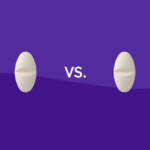Xanax, also known by its generic name Alprazolam, is a medication that belongs to the benzodiazepine class. It is commonly prescribed by healthcare professionals to treat various anxiety and panic disorders. In this article, we will provide comprehensive information about Xanax, including its uses, dosage, side effects, and the crucial importance of obtaining a prescription from a licensed healthcare professional.
What is Xanax (Alprazolam)?
Xanax is a prescription medication that acts on the central nervous system to produce a calming effect. It is commonly used to treat anxiety disorders, panic disorders, and in some cases, to manage the symptoms of anxiety associated with depression. Alprazolam, the active ingredient in Xanax, enhances the effects of a neurotransmitter called gamma-aminobutyric acid (GABA) in the brain. This, in turn, helps to reduce excessive brain activity, resulting in a state of relaxation and decreased anxiety.
Check Out:
Uses of Xanax
1. Anxiety Disorders
Xanax is primarily prescribed for the treatment of anxiety disorders, which can manifest in various forms such as generalized anxiety disorder (GAD), social anxiety disorder, and specific phobias. It is especially effective in relieving the acute symptoms of anxiety.
2. Panic Disorders
Panic disorders are characterized by sudden and recurrent episodes of intense fear and physical symptoms like a rapid heartbeat, shortness of breath, and chest pain. Xanax can provide rapid relief during panic attacks, making it a valuable tool for individuals suffering from this condition.
3. Off-label Uses
In some cases, healthcare professionals may prescribe Xanax for off-label uses, such as managing the symptoms of insomnia, seizures, and muscle spasms. However, these uses are typically less common and should be at the discretion of a qualified medical provider.
Dosage and Administration
Xanax is available in various forms, including immediate-release and extended-release tablets, as well as orally disintegrating tablets. The appropriate dosage and form of Xanax can vary based on an individual’s specific condition and medical history. It is crucial to follow the prescription provided by your healthcare professional. Generally, the dosages may include:
- For anxiety disorders: An initial dose of 0.25 to 0.5 mg, three times daily, can be prescribed.
- For panic disorders: An initial dose of 0.5 mg, three times daily, is often recommended.
It’s important to never exceed the prescribed dosage, as Xanax is a medication that can lead to dependence when misused.
Potential Side Effects
While Xanax can be highly effective in treating anxiety and panic disorders, it is not without potential side effects. Common side effects may include:
- Drowsiness
- Dizziness
- Headache
- Dry mouth
- Increased salivation
- Changes in sex drive
More serious side effects are rare but can occur, including:
- Allergic reactions (rash, itching, swelling)
- Hallucinations or severe confusion
- Jaundice (yellowing of the skin or eyes)
- Severe drowsiness
- Uncontrolled movements or muscle twitching
If you experience any severe side effects, it is crucial to seek medical attention immediately.
Safety Precautions
Xanax is a potent medication, and it should be taken with caution. Here are some important safety precautions to keep in mind:
- Prescription Requirement: Xanax should only be used when prescribed by a licensed healthcare professional who has carefully evaluated your condition.
- Dependence and Withdrawal: Xanax has the potential for dependence, especially if used inappropriately or for an extended period. It should not be abruptly stopped, as withdrawal symptoms can be severe. Tapering under the guidance of a healthcare provider is essential.
- Interaction with Other Medications: Xanax may interact with other medications and substances, including alcohol. It’s vital to inform your healthcare provider about all the medications you are taking.
- Pregnancy and Breastfeeding: Xanax should be avoided during pregnancy and breastfeeding, as it can pass into breast milk and potentially harm the baby.
- Driving and Operating Machinery: Xanax can impair cognitive and motor skills, so it’s essential to avoid activities such as driving or operating heavy machinery until you know how it affects you.
Conclusion
Xanax (Alprazolam) is a valuable medication for managing anxiety and panic disorders when used under the guidance of a licensed healthcare professional. While it can be highly effective in providing relief from symptoms, it is essential to respect the prescription and the safety precautions associated with its use. If you or someone you know is struggling with anxiety or panic disorders, it is crucial to seek the advice of a qualified medical provider to determine the most appropriate treatment, which may or may not include Xanax. Your mental health and well-being are of utmost importance, and a healthcare professional can help guide you toward the right path to recovery.






